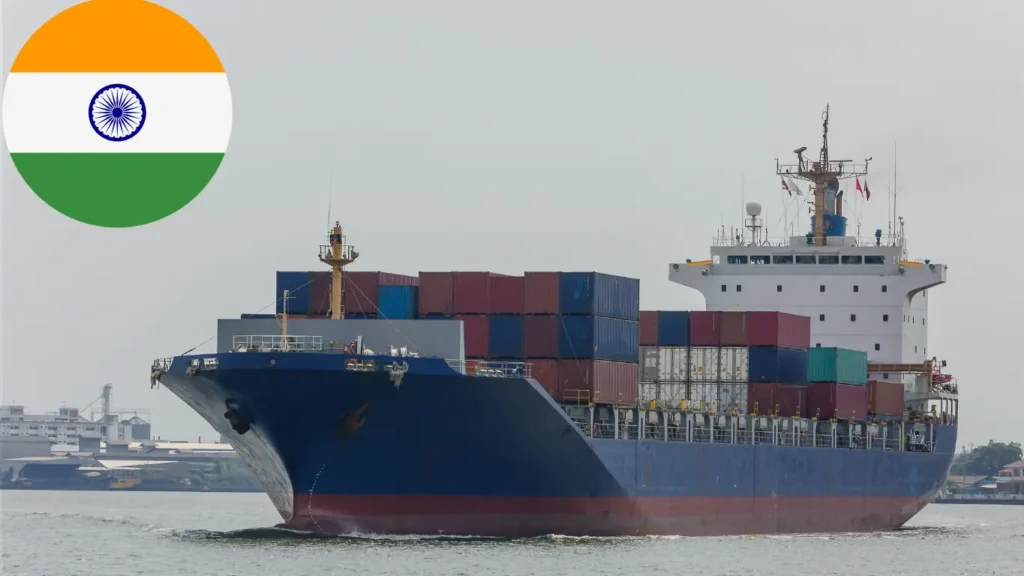
The merchant navy is a vital sector for global trade, and choosing the right college in India can set the foundation for a successful career at sea. Based on reputation, infrastructure, and placement records, several institutions stand out. Here’s a breakdown of the best merchant navy colleges in India and what you need to know.
Top Colleges
Colleges like Tolani Maritime Institute in Pune and Indian Maritime University (IMU) with campuses across India are highly regarded. They offer courses such as B.Tech in Marine Engineering and B.Sc. in Nautical Science, with fees varying from INR 1.5 lakh to 6 lakh annually depending on whether it’s a government or private institution. Anglo-Eastern Maritime Academy is noted for guaranteed placements, a significant advantage for students.
Eligibility and Practical Training
To get in, you typically need to have completed 10+2 with Physics, Chemistry, and Mathematics, achieving at least 60% aggregate, and pass the IMU Common Entrance Test for IMU-affiliated colleges. Practical training, including simulator use and onboard experience, is essential and often integrated into the curriculum.
Recent Trends
An interesting development is the inclusion of new courses like Cyber Security in Shipping and a focus on sustainability, aligning with global green shipping initiatives. This reflects the evolving nature of the industry as of March 2025.
List of Best Merchant Navy Colleges in India
Below is a detailed list of the top 10 merchant navy colleges, each with its strengths and notable features:
| College Name | Location | Key Strengths | Notable Courses |
|---|---|---|---|
| Tolani Maritime Institute (TMI) | Pune, Maharashtra | Strong industry ties (Maersk, NYK), high placement rates, excellent infrastructure | B.Tech Marine Engineering, B.Sc. Nautical Science, DNS |
| Indian Maritime University (IMU) | Multiple campuses | Government-run, comprehensive programs, robust placements | B.Tech Marine Engineering, B.Sc. Nautical Science, MBA Port Management |
| Anglo-Eastern Maritime Academy (AEMA) | Karjat, Maharashtra | Guaranteed placements, modern simulators, short waiting period | DNS, B.Tech Marine Engineering, GME |
| Great Eastern Institute of Maritime Studies (GEIMS) | Lonavala, Maharashtra | Assured placements, advanced facilities, part of Great Eastern Shipping Co. | DNS, GME |
| Samundra Institute of Maritime Studies (SIMS) | Lonavala, Maharashtra | World-class training, cutting-edge simulators, international ties | DNS, B.Tech Marine Engineering, GME |
| Marine Engineering and Research Institute (MERI) | Kolkata, West Bengal | Oldest institution, specializes in marine engineering, proximity to port | B.Tech Marine Engineering, Naval Architecture |
| Training Ship Chanakya (T.S. Chanakya) | Navi Mumbai, Maharashtra | Premier government institute, unique onboard training, strong reputation | B.Sc. Nautical Science, DNS |
| Institute of Maritime Studies (IMS) | Goa | Transparent, good placement records, attracts reputed companies | B.Tech Marine Engineering, GME |
| Hindustan Institute of Maritime Training (HIMT) | Chennai, Tamil Nadu | Wide range of courses, modern infrastructure, strong industry connections | B.Tech Marine Engineering, DNS, GME, ETO |
| The Shipping Corporation of India Maritime Training Institute | Mumbai, Maharashtra | Government-backed, 100% placement, longer waiting period | DNS, GME |
Please note that official websites for some institutions, such as MERI and T.S. Chanakya, are hosted under the Indian Maritime University’s domain. Additionally, information for certain colleges was sourced from reliable educational directories.
Each college is approved by DG Shipping, ensuring quality education and training. For instance, TMI is known for its ties with top shipping companies like Maersk and Chevron, while IMU, being a central university, offers a broad range of programs across its campuses.
Comprehensive Analysis of Best Merchant Navy Colleges in India
Introduction and Context
The merchant navy, often referred to as the backbone of global trade, facilitates the transportation of goods across oceans, playing a pivotal role in international commerce. For aspiring seafarers in India, selecting the right college for maritime education is crucial, given the demanding and regulated nature of the industry. This survey note aims to provide a detailed overview of the best merchant navy colleges in India, considering factors such as accreditation, reputation, infrastructure, faculty, placement records, and course offerings. The analysis is current as of March 1, 2025, and addresses common questions to assist prospective students in making informed decisions.
Criteria for Selection
To identify the top merchant navy colleges, several key criteria were evaluated:
- Accreditation: All colleges must be approved by the Directorate General of Shipping (DG Shipping), Government of India, ensuring compliance with international standards.
- Reputation: Institutions with a long history of excellence in maritime education were prioritized.
- Infrastructure: State-of-the-art facilities, including advanced simulators, laboratories, and libraries, were considered essential.
- Faculty: The presence of experienced and qualified instructors, often with industry experience, was a significant factor.
- Placement Records: Colleges with strong ties to shipping companies and high placement rates were highlighted.
- Course Offerings: A comprehensive range of programs, covering nautical science, marine engineering, and related fields, was deemed necessary.
These criteria ensure that the selected colleges prepare students for the challenges of a maritime career, aligning with both national and international standards.
Common Questions Answered
To address the needs of prospective students, here are detailed answers to frequently asked questions:
- What are the eligibility criteria for merchant navy colleges in India?
Most courses require completion of 10+2 with Physics, Chemistry, and Mathematics, achieving a minimum of 60% aggregate. Additionally, passing the IMU Common Entrance Test (CET) is necessary for IMU-affiliated colleges, while others may have their own entrance exams. - What are the popular courses in merchant navy colleges?
Popular courses include B.Tech in Marine Engineering, B.Sc. in Nautical Science, Diplomat in Nautical Science (DNS), Graduate Marine Engineering (GME), MBA in Port and Shipping Management, Naval Architecture & Ocean Engineering, and Electro-Technical Officer (ETO). - How long do the courses last?
- B.Tech in Marine Engineering: 4 years
- B.Sc. in Nautical Science: 3 years
- DNS: 1 year (after 10+2)
- GME: 1 years (after 10+2)
- MBA in Port and Shipping Management: 2 years
- What are the job prospects after completing these courses?
Graduates can pursue roles such as Deck Cadet/Third Mate, Marine Engineer, Navigation Officer, Ship’s Captain, Port Manager, Shipping Manager, and Naval Architect. Many colleges facilitate placements with national and international shipping firms, often during the course or shortly after.] - What is the fee structure for these courses?
Fees vary by college and course type. Government colleges like IMU charge approximately INR 1.5 lakh to 3 lakh per annum, while private colleges like TMI and AEMA range from INR 3 lakh to 6 lakh per annum. Exact fees should be checked on official websites. - Are there any scholarships or financial aid available?
Yes, many colleges offer merit-based scholarships, and government schemes, as well as private organizations, provide financial aid to eligible students. - What is the difference between nautical science and marine engineering?
Nautical Science focuses on the operation and navigation of ships, emphasizing deck-side responsibilities. Marine Engineering deals with the machinery and engineering aspects, focusing on the engine side of ships. - Is there any age limit for admission?
Generally, the minimum age is 17 years, with no upper age limit, though specific colleges may have additional criteria. It’s advisable to check individual college policies. - How important is practical training in these courses?
Practical training is crucial, with colleges providing access to simulators, onboard training, and internships. This hands-on experience is vital for preparing students for real-world maritime challenges. - What are the recent developments in merchant navy education in India?
As of March 2025, recent developments include the introduction of courses like Cyber Security in Shipping, a focus on sustainability and green shipping, collaborations with international maritime institutions, and the use of advanced technologies such as virtual reality and augmented reality in training. - What is the difference between a government and a private merchant navy college?
- Government Colleges: Run by state or central government, offering lower fees and standardized curricula, e.g., IMU campuses.
- Private Colleges: Operated by private entities, often with better infrastructure and industry connections, e.g., TMI and AEMA.
- How does the placement process work?
Placement processes vary; some colleges guarantee placements with parent companies, while others organize campus recruitment drives. Students may also need to apply independently, depending on the college’s ties with shipping firms. - What are the prospects for international placements?
Many colleges have ties with international shipping companies, offering opportunities to work on foreign-registered ships. The prospects depend on the college’s reputation and the student’s performance during training.
- Conclusion and Recommendations
- Choosing the right merchant navy college involves considering factors like course offerings, placement records, and campus facilities. The colleges listed, such as TMI, IMU, and AEMA, are among the best in India, offering a blend of academic rigor and practical training. Prospective students should research each institution thoroughly, possibly visiting campuses or connecting with current students for insights. Given the recent focus on sustainability and new courses, it’s an exciting time to enter the field, with opportunities for global careers.

